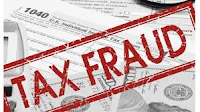 The Internal Revenue Service (IRS) can issue a "John Doe" summons to a bank that provided services for customers of cryptocurrency prime broker SFOX, a New York judge ordered Thursday. The ruling will allow the tax agency to continue looking for potential tax evaders in an ongoing probe.
The Internal Revenue Service (IRS) can issue a "John Doe" summons to a bank that provided services for customers of cryptocurrency prime broker SFOX, a New York judge ordered Thursday. The ruling will allow the tax agency to continue looking for potential tax evaders in an ongoing probe.
The summons requires M.Y. Safra Bank to provide information about the SFOX customers who may not have reported and paid taxes on crypto transactions. In August, the IRS received authorization from a California judge to serve a "John Doe" summons on SFOX itself.
A New York City bank must produce records on U.S. cus
tomers of a digital asset trading platform who may owe tax on unreported crypto transactions, a federal judge ordered.
The IRS was handed a win September 21 when the U.S. District Court for he Southern District of New York granted the agency's ex parte petition for leave to serve a so-called John Doe summons to M.Y. Safra Bank following an investigation into the crypto trading platform SFOX. Judge Paul Gardephe agreed there was a "reasonable basis for believing" at least 10 individuals may have failed to disclose and pay tax on crypto transactions conducted by the taxpayers via SFOX, which uses M.Y. Safra's banking services.
These currently unidentified taxpayers, and potentially others, may have failed to report to the IRS profits from crypto sales and pay tax on applicable gains, which the agency can determine by obtaining bank records from M.Y. Safra. The IRS, and the federal government overall, have become hawkish on tax evasion schemes that take advantage of Web 3.0 (the newest iteration of the World Wide Web, often denoted by decentralized platforms and blockchains) crypto technologies.
"The government's ability to obtain third-party information on those failing to report their gains from digital assets remains a critical tool in catching tax cheats," IRS Commissioner Chuck Rettig said. "The court's granting of the John Doe summons reinforces our ongoing, significant efforts to ensure that everyone pays their fair share. Taxpayers earning income from digital asset transactions need to come into compliance with their filing and reporting responsibilities."
As the IRS explained in its petition, taxpayers "must report income, gain, or loss from all taxable transactions involving virtual currency on their federal income tax returns for the year of the transactions, regardless of the amount or whether they received a payee statement or information return." Regarding its desire to crack down on crypto noncompliance, the agency argued that evaders are drawn in by the prospect of "pseudo-anonymity."
In a September 22 statement, the Justice Department described SFOX as "a cryptocurrency prime dealer and trading platform that connects digital currency exchanges, over-the-counter virtual currency brokers, and liquidity providers globally." The platform has more than 175,000 users and has facilitated over $12 billion since it was founded in 2014.
Although M.Y. Safra had been issued summonses, the Justice Department clarified there was "no allegation" that the bank engaged in any wrongdoing. The John Doe summonses serve only to identify the unknown individuals suspected of having outstanding tax liabilities.
The IRS previously was permitted to hand ndown summonses to SFOX itself pursuant to an order from the U.S. District Court for the Central District of California in another case. In a statement regarding that case, SFOX said it would review "internally and with external legal counsel around next steps," and "always adheres to the law."
Have an IRS Tax Problem?
Contact the Tax Lawyers at
Marini & Associates, P.A.
for a FREE Tax HELP Contact us at:
www.TaxAid.com or www.OVDPLaw.com
or Toll Free at 888 8TAXAID (888-882-9243)










